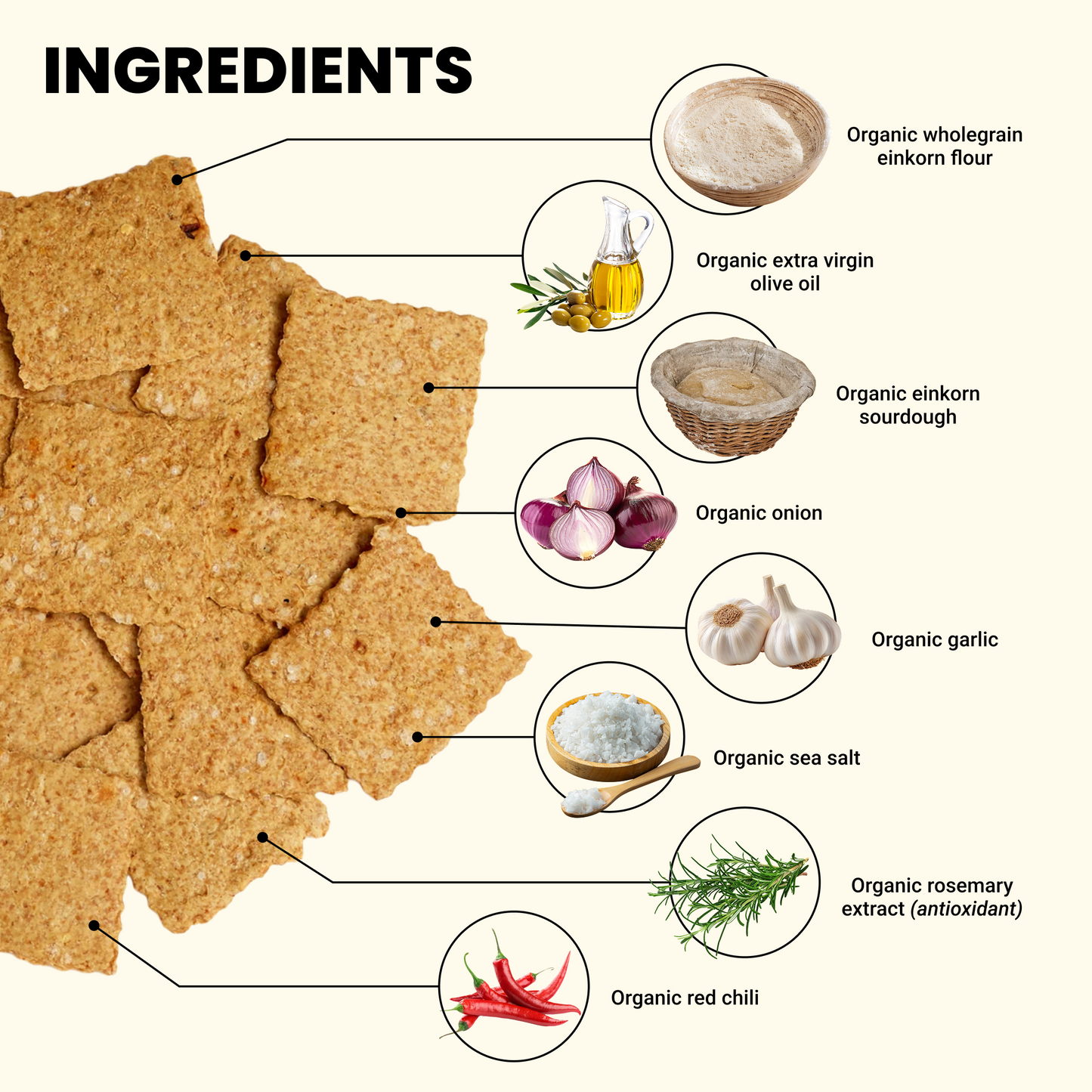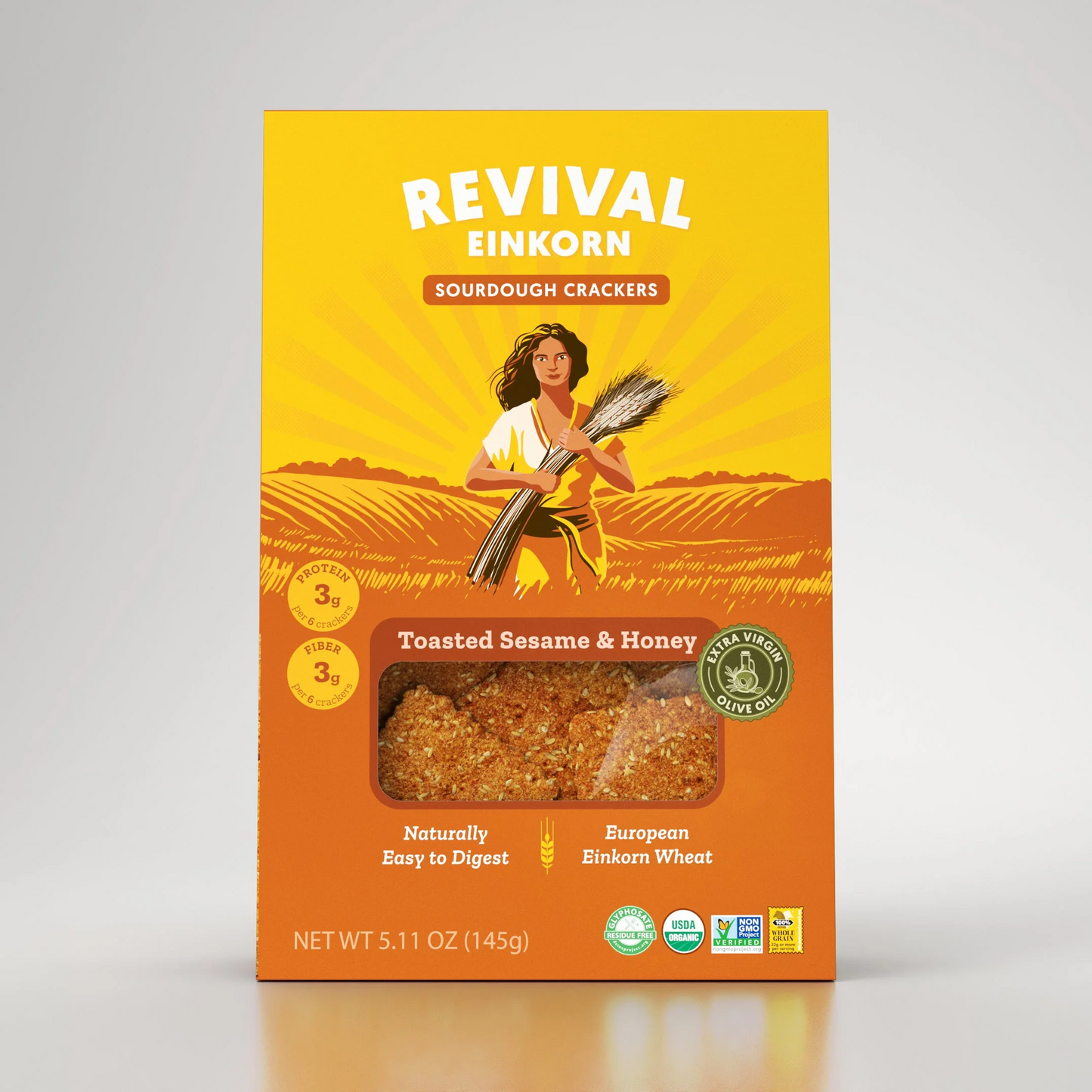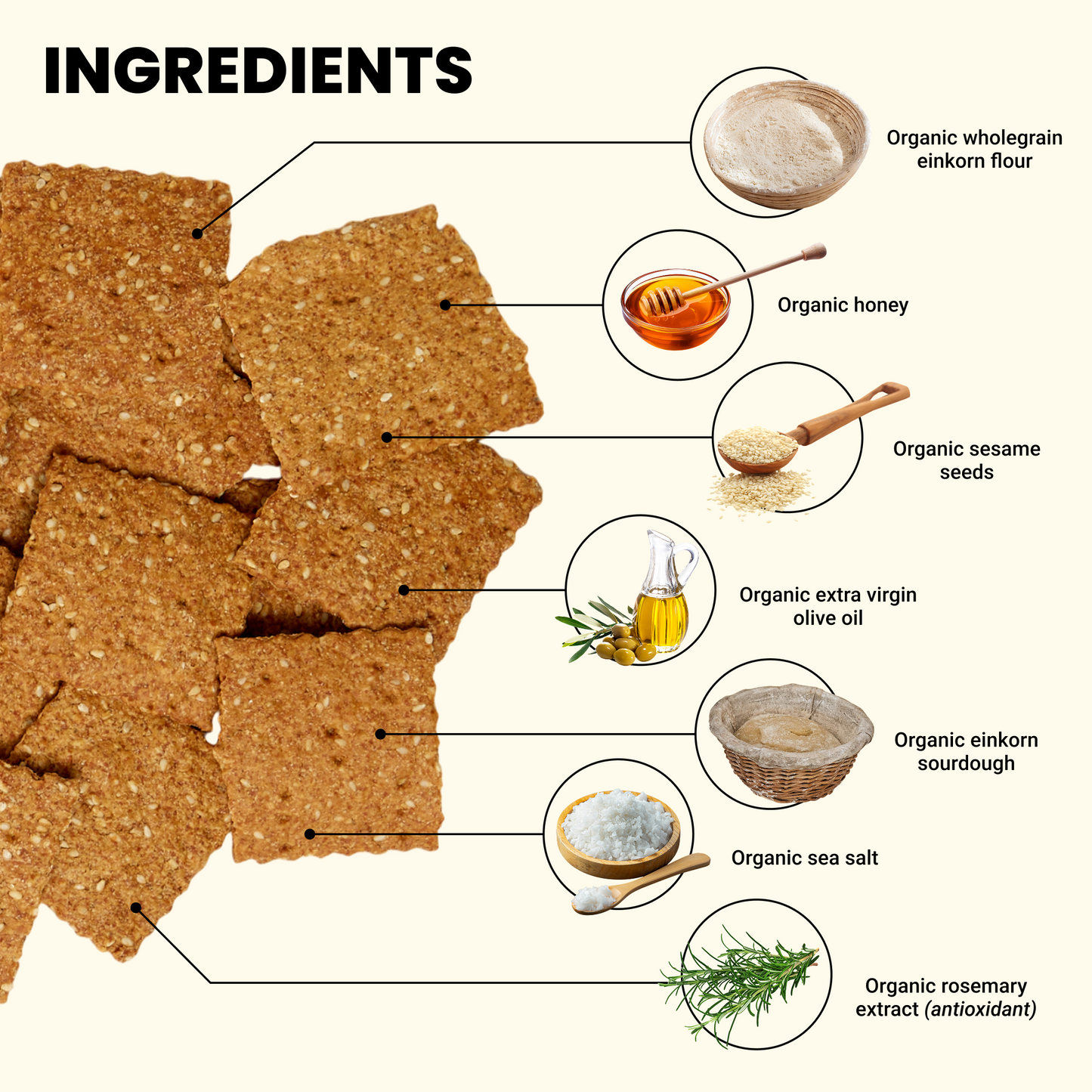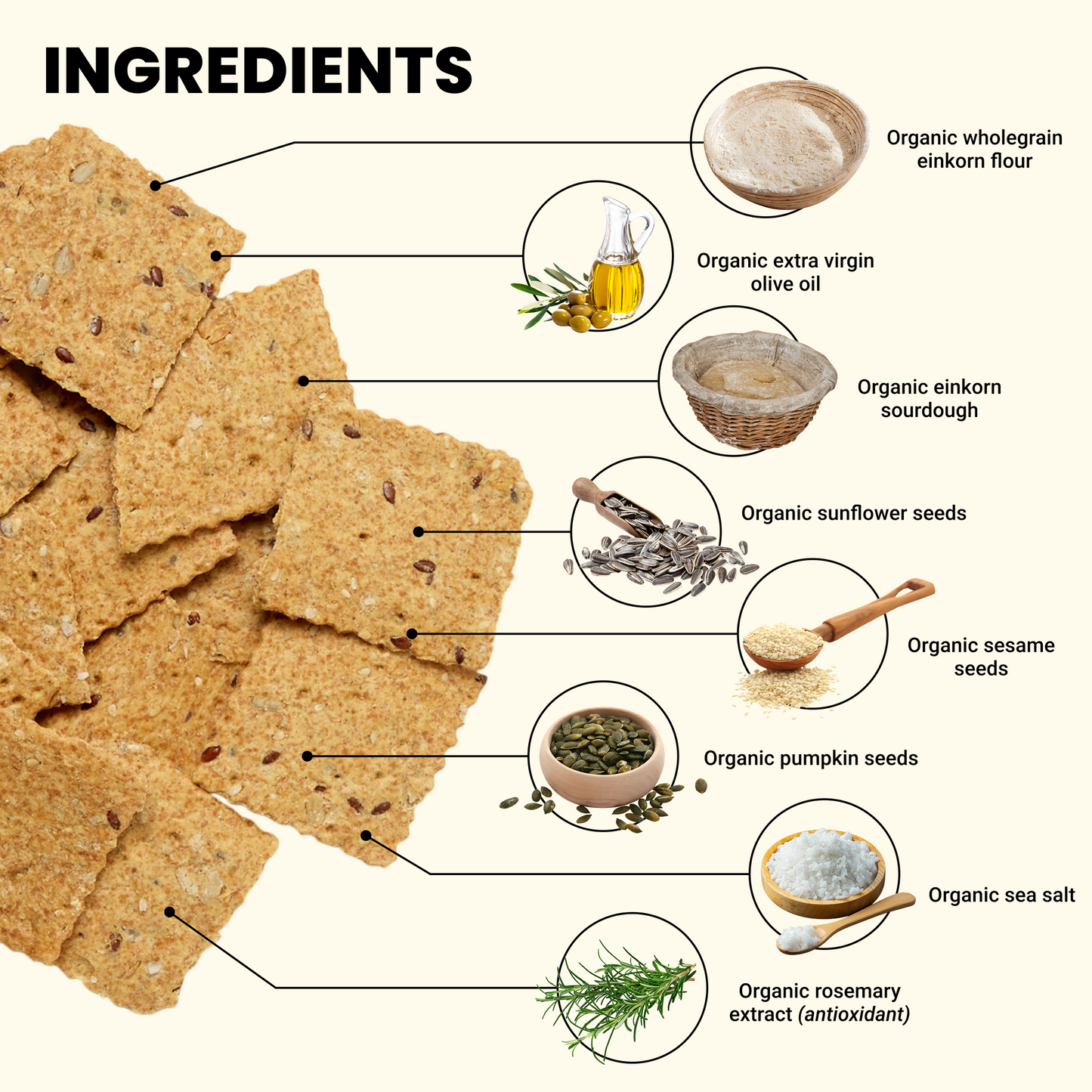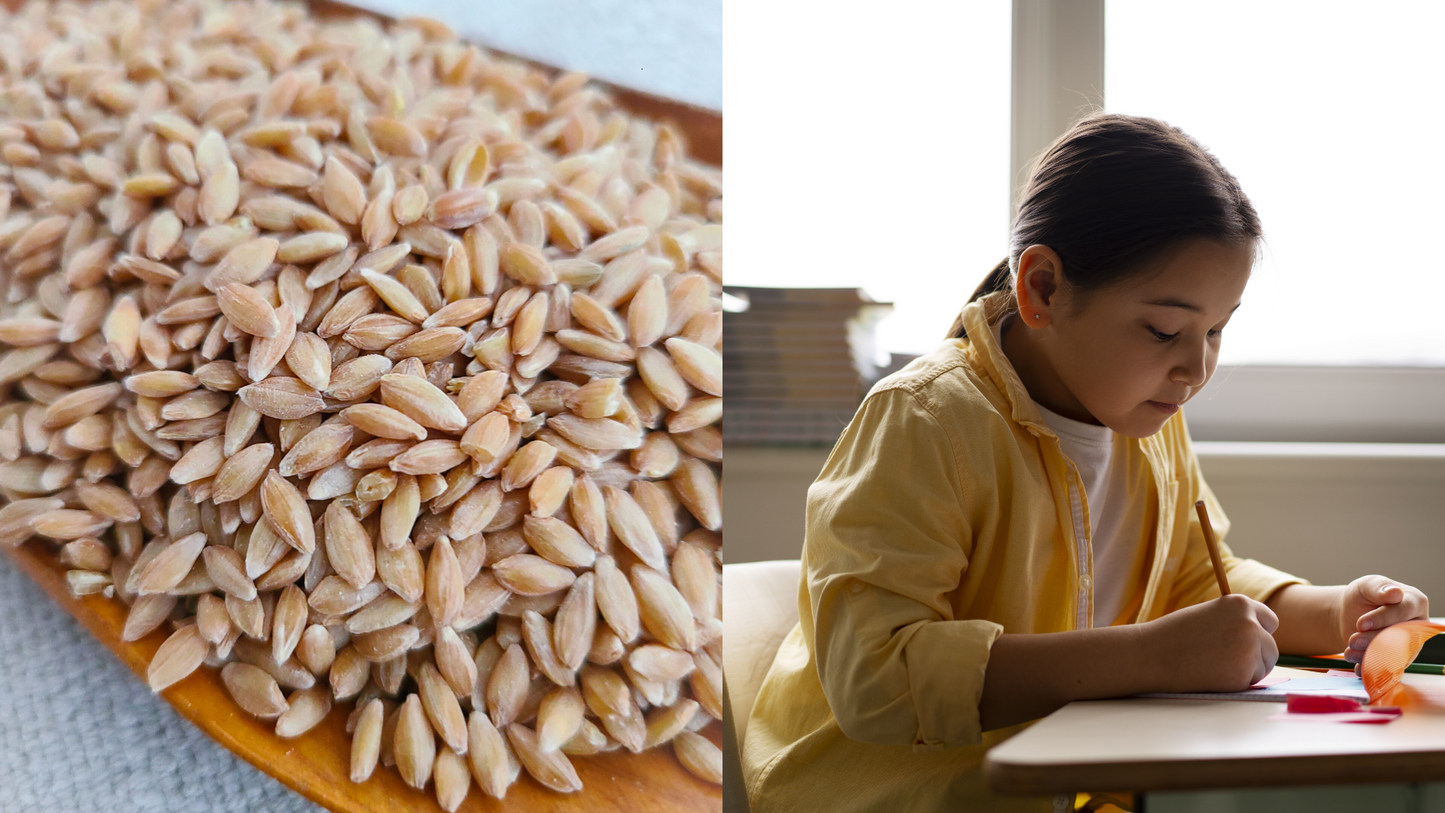
By Amanda Archibald
As someone who's spent a lot of time diving into the connection between nutrition and genetics, I can confidently say that ancient grains like einkorn hold incredible potential for supporting children with ADHD. You might be wondering, how can something as simple as a grain make a difference? Well, let me walk you through it.
What Makes Einkorn Special?
Einkorn, one of the earliest cultivated grains, remains untouched by the heavy hybridization that has shaped modern wheat. Its structure remains simpler and more natural – closer to what our bodies are designed to process. Unlike conventional wheat, einkorn maintains its original nutrient profile, which includes a solid dose of B vitamins, particularly B6 and B9 (Folate), key players when we talk about brain health and managing conditions like ADHD.
Why ADHD and Nutrition Are So Connected.
I’ve worked with a lot of kids who have ADHD, and one thing that consistently comes up is that brain chemistry is everything. We see that the pathways for dopamine and serotonin—the neurotransmitters that control focus, mood, appetite, digestion, learning, memory and movement—can be inefficient in kids with ADHD. And here’s the thing—nutrition directly influences these pathways.
Many of the kids I see in my practice are deficient in key nutrients critical for optimal brain function—nutrients like omega-3s, vitamin B6, and natural folate. These nutrients help create and maintain those neurotransmitters that children with ADHD need to thrive. That’s where einkorn comes into the picture.
How Einkorn Can Support Kids with ADHD
So, how exactly does einkorn help? Let's break it down.
- Reducing Hidden Inflammation: Children with ADHD often deal with hidden inflammation, which can potentially damage delicate brain cells and impact cognitive function and behavior. Omega-3s do fantastic damage control, as do manganese and selenium – both naturally high in einkorn (a rare find in most foods!)
- Rich in Brain-Boosting Nutrients: Einkorn is packed with vitamin B6, which is essential for producing dopamine. If a child's dopamine levels are too low, they may struggle with focus and motivation, while too much dopamine can lead to impulsive behavior. B6 helps balance this, making einkorn a great addition to an ADHD-supportive diet.
- Easier on Digestion: Unlike heavily processed wheat, einkorn has a simpler gluten structure, making it easier to digest, especially for those with non-celiac gluten sensitivities. Many kids with ADHD are sensitive to processed foods and gluten, so switching to einkorn can help avoid inflammation that impacts brain function. However, einkorn may not be suitable if your child is on an elimination diet to assess food sensitivities, including gluten. That said, if you're in the reintroduction phase to test gluten tolerance, einkorn is an excellent option—provided celiac disease has been ruled out.
- Natural Source of Folate: Einkorn contains natural folate, vital for brain health. It’s important to note that synthetic folic acid, often added to processed foods, doesn't act the same way in the body. In fact, synthetic folic acid can actually slow down crucial processes like DNA repair and neurotransmitter production. Einkorn provides kids with the natural folate their brains need to function properly.
- Balances Blood Sugar: One of the most overlooked factors in ADHD management is blood sugar regulation. Einkorn has a lower glycemic index than modern wheat, helping to stabilize blood sugar levels. When kids experience sugar spikes and crashes, it can lead to irritability and difficulty concentrating—two things we want to avoid!
Food is Information for the Body
When we talk about ADHD, we can't forget that food is information for the body. What we eat sends signals to our brain, influencing how it functions. Heavily processed foods often send the wrong signals, contributing to neuroinflammation and some behavioral symptoms of ADHD.
Einkorn is different. It provides nutrients in their natural, unprocessed form, meaning the body can recognize and use them more effectively. This is crucial for children whose brains are already working overtime to compensate for inefficiencies in dopamine and serotonin pathways.
Why Choose Einkorn?
Look, I get it. There are lots of options when it comes to food. Time and time again, in the field of genomic nutrition, we’re seeing that returning to natural, unprocessed foods—the way our ancestors ate—makes a huge impact on how our body and brain function. The nutrient information in these foods is in the form and ratios nature designed, and the body recognizes them. Einkorn is one of those ancient grains that hasn’t been tampered with, preserving its nutritional integrity—exactly what our kids need to support their neural pathways.
A Final Thought on Einkorn and ADHD
To sum it up, einkorn isn’t just another trendy health food—it’s a powerful, nutrient-dense grain packed with the vitamins and minerals your child needs for brain health. By offering a rich source of B vitamins, folate, and other essential nutrients, einkorn helps balance brain chemistry naturally. It’s about giving the body the tools it needs to function as Mother Nature intended, rather than relying solely on medications to restore balance.
If you’re looking for ways to support your child’s brain health, especially in managing ADHD, einkorn could be an easy and effective addition to their diet. Let’s help our kids thrive by giving their bodies and brains the natural nutrition they need!


